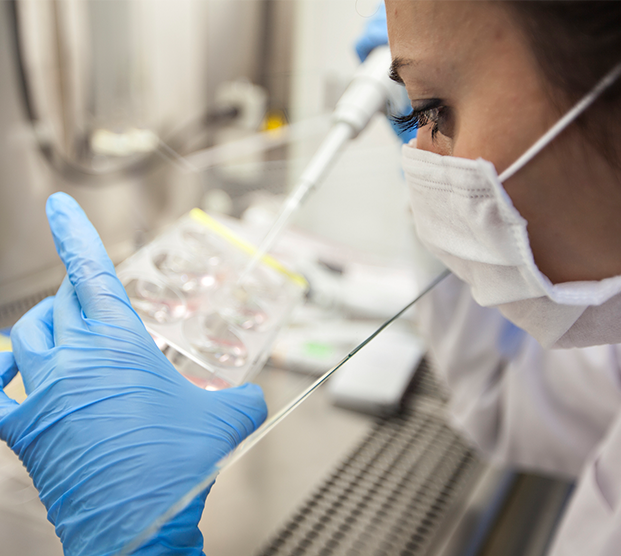


Causes of Male Infertility
Genetic Tests
A genetic test may be done to detect signs of genetic abnormalities affecting the Y chromosome that’s unique to men. Testing evaluates long strands of deoxyribonucleic acid (DNA) to look at the set-up or structure of chromosomes and identify unusual genetic changes or mutations. Genetic testing may be necessary in the following instances:
Low sperm count
No sperm found in semen samples
Smaller than normal testicles
The vas deferens cannot be felt during a physical exam
Multiple miscarriages
Genetic testing can help identify uncommon sources of infertility issues, such as:




Celiac disease
Problems linked to previous surgeries in the pelvic area
Exposure of the testicles to consistently high temperatures
Hormone Testing
Hormone testing for male fertility will analyze levels of testosterone, estradiol, follicle stimulating hormone, thyroid stimulating hormone, prolactin, and luteinizing hormone.
Low levels of testosterone may impact fertility in men, causing problems with sperm production, erectile dysfunction, and low sex drive.
Estradiol helps the sperm in reproduction and supports sufficient sperm count. This hormone is produced by the testicles, adrenal glands, and the pituitary gland.
The follicle stimulating hormone may be tested if the man has a reduced total motile sperm count or low sperm density. The hormone works with the luteinizing hormone to ensure adequate production of sperm and testosterone by the testicles. Follicle stimulating hormone also supports the health of sperm cells until they are released.
Problems with the thyroid can lead to male infertility. An underactive thyroid can also cause weight gain, muscle aches, fatigue, and dry skin. An overactive thyroid can cause palpitations, fatigue, fast heartbeat, and weight loss.
Patients with a low testosterone level may need their prolactin levels tested. High levels of prolactin can lead to abnormal sperm or low testosterone levels, leading to infertility.
Luteinizing hormone stimulates the production of testosterone in the Leydig cells and has a synergistic relationship with follicle stimulating hormone.
Semen Analysis
Also known as a sperm count test, semen analysis evaluates the health and viability of a man’s sperm. The test measures the following factors:
-
The number of sperm
- The shape of sperm
- Sperm motility, or movement
- pH levels
- Liquefaction
- Appearance
Physicians typically do two or three separate sperm analyses to evaluate sperm health. Sperm may be collected through the following ways:
- Masturbation (the preferred option)
- Sex with a condom
- Sex with withdrawal before ejaculation
-
Ejaculation stimulated by electricity
Scrotal Ultrasound
A scrotal ultrasound identifies issues that could be impacting sperm production or quality. During the ultrasound, high-frequency sound waves produce detailed images of internal structures to identify varicoceles and possible structural problems within the sac that holds the testicles. An ultrasound will be used to look for:
- Signs of an unusual mass in the scrotum
- Anything that suggests trauma or damage to tissues or structures
- Evidence of any abnormal internal inflammation or swelling
- Irregularly shaped testicles
Sperm Retrieval
Sperm retrieval is a minimally invasive procedure to extract or aspirate sperm from the testes. This procedure is recommended for patients with low sperm count, lack of sperm in their ejaculate, or those diagnosed with conditions like cancer that can make conception difficult or impossible.
During testicular sperm aspiration (TESA), a needle is inserted into the testicle to aspirate the sperm from the tissue. Patients who undergo percutaneous epididymal sperm aspiration (PESA) will have an incision made in their testes to retrieve sperm. Micro-TESE can also be done to retrieve sperm. With this method, pockets of sperm are identified and harvested.

